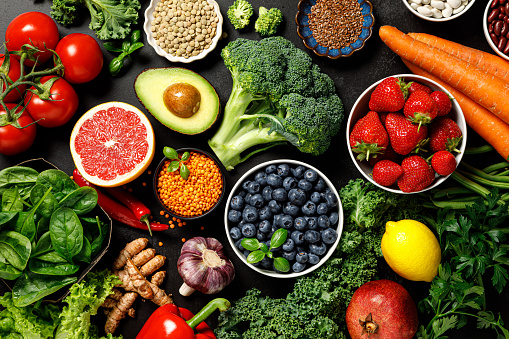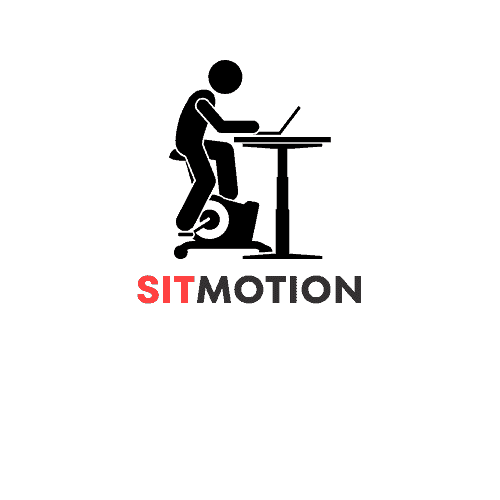If you’re on a quest to shed unwanted pounds and wondering how to achieve your weight loss goals effectively, look no further. This article is your ultimate guide to finding the best way to lose weight. Jam-packed with valuable insights and practical tips, it will empower you to make informed decisions about your health and embark on a transformative journey towards a healthier, happier you. Whether you’re seeking dietary advice, exercise routines, or lifestyle changes, this article has got you covered. Get ready to discover the secrets to sustainable weight loss and embark on a path towards a healthier, more fulfilling lifestyle.
Choosing the Right Diet Plan
When it comes to choosing the right diet plan for weight loss, it’s important to consider your lifestyle and preferences. Every person is unique, and what works for one individual may not work for another. Take some time to think about your daily routine, work schedule, and any dietary restrictions or preferences you have. For example, if you have a busy schedule and limited time to cook, a meal delivery service or a plan that emphasizes quick and easy recipes may be a good fit.
Consulting a nutritionist or dietitian can also be incredibly helpful in finding the right diet plan for you. These professionals have the knowledge and expertise to assess your nutritional needs, evaluate your current eating habits, and provide personalized recommendations. They can help you navigate through the overwhelming amount of information available and guide you towards a sustainable and effective diet plan.
Once you have chosen a diet plan, it’s important to evaluate its effectiveness. Keep track of your progress and make note of any changes in your weight, energy levels, and overall well-being. If you’re not seeing the desired results after a reasonable amount of time, it may be necessary to reevaluate and make adjustments to your plan. Here are some Evidence-Based Health and Nutrition Tips
Ensure Adequate Nutritional Intake
While weight loss is often the primary goal of a diet plan, it’s crucial to ensure that you’re still getting adequate nutrition. Restrictive diet plans that severely limit certain food groups or nutrients can lead to nutrient deficiencies and health complications. It’s important to include a variety of nutrient-dense foods in your diet to meet your body’s needs.
Focusing on nutrient-dense foods means choosing options that are rich in vitamins, minerals, and other essential nutrients, while being relatively low in calorie content. Incorporating plenty of fruits, vegetables, whole grains, lean proteins, and healthy fats can help you meet your nutritional needs while still promoting weight loss.

Sustainable Long-Term Weight Loss
When embarking on a weight loss journey, it’s important to focus on sustainability. Many fad diets promise quick results, but they are often difficult to maintain in the long run. It’s important to choose a diet plan that you can stick to for the long term, rather than relying on temporary fixes.
Sustainable weight loss involves making lifestyle changes that you can incorporate into your daily routine and maintain over time. This might mean finding healthier alternatives to your favorite indulgences, learning to cook nutritious meals, or finding enjoyable ways to stay active. Check out some of the best under desk exercise equipment you can use while sitting to stay active throughout the day. By adopting healthy habits that you can sustain, you’ll be more likely to achieve and maintain your weight loss goals.
Creating a Calorie Deficit
One of the key aspects of losing weight is creating a calorie deficit. This means consuming fewer calories than your body needs to maintain its current weight. By doing so, your body will tap into its stored fat reserves, resulting in weight loss.
To create a calorie deficit, it’s important to start by calculating your Basal Metabolic Rate (BMR). Your BMR is the number of calories your body needs to function at rest. There are online calculators available that can help you determine your BMR based on your age, height, weight, and gender. Once you have your BMR, you can aim to consume fewer calories than that number to create a calorie deficit.
Tracking your daily caloric intake is an effective way to ensure you’re staying within your calorie goals. There are many smartphone apps and online tools available that make it easy to log your food and keep track of your calorie consumption. By monitoring your calorie intake and adjusting as needed, you can effectively create a calorie deficit and promote weight loss.
Incorporating exercise and physical activity is another important aspect of creating a calorie deficit. Regular exercise helps to burn additional calories, making it easier to achieve the desired calorie deficit. Find activities that you enjoy and make them a part of your daily routine. Whether it’s walking on a treadmill at your desk, taking a dance class, or hitting the gym, finding ways to move your body can aid in weight loss.

Balancing Macronutrients for Weight Loss
In addition to creating a calorie deficit, it’s important to pay attention to the macronutrients in your diet. Macronutrients, or macros, refer to proteins, carbohydrates, and fats. Finding the right balance of these nutrients is essential for weight loss as they play different roles in your body.
Proteins are important for building and repairing tissues, as well as helping you feel full and satisfied. Include lean sources of protein such as chicken, fish, tofu, and legumes in your diet to support your weight loss goals.
Carbohydrates provide fuel for your body and brain. Opt for complex carbohydrates like whole grains, fruits, and vegetables, as they are rich in fiber and will keep you feeling full for longer periods of time. Avoid excessive consumption of refined carbohydrates, such as white bread and sugary snacks, as they can lead to blood sugar spikes and cravings.
Fats are also an important part of a balanced diet. Choose healthy fats like avocados, nuts, seeds, and olive oil. These fats are not only good for your overall health, but they also contribute to feelings of satiety.
Avoiding excessive sugar and refined grains is important for weight loss. These foods are often high in calories and lack essential nutrients. Instead, focus on incorporating whole, unprocessed foods into your diet to ensure a steady intake of vitamins, minerals, and fiber.
Mindful Eating and Portion Control
Practicing mindful eating can greatly contribute to weight loss. Mindful eating involves paying attention to your body’s hunger and fullness cues and being present while you eat. By slowing down and savoring each bite, you become more in tune with your body’s needs.
Using smaller plates and bowls is a simple yet effective strategy to help control portion sizes. Research has shown that using smaller tableware can lead to consuming fewer calories without feeling deprived. By visually filling your plate with smaller portions, you can still enjoy a full plate of food while consuming fewer calories.
Avoiding distractions during meals is also important for mindful eating. Turn off the TV, put away your phone, and focus on your meal. By giving your full attention to your food, you can better gauge your hunger and fullness levels.
Listening to your body’s hunger and fullness cues is essential for weight loss. Eat when you’re hungry and stop when you’re comfortably satisfied. It’s important to avoid overeating and to recognize when you’ve had enough.
Establishing regular meal times can also contribute to mindful eating and portion control. Aim to eat at consistent times throughout the day to maintain a stable metabolism and prevent excessive snacking or overeating.

The Importance of Hydration
Hydration plays a significant role in weight loss. Drinking sufficient amounts of water daily can help boost your metabolism, increase satiety, and curb unhealthy cravings. Additionally, staying well-hydrated promotes overall health and helps optimize bodily functions.
To ensure you’re drinking enough water, it’s recommended to aim for at least eight 8-ounce glasses per day, or about 2 liters. However, individual needs may vary depending on factors such as climate, physical activity levels, and overall health.
Replacing sugary beverages with water is an excellent way to cut unnecessary calories and improve hydration. Sugary drinks like soda and fruit juices are often high in calories and provide little nutritional value. Opting for water, herbal tea, or infused water can not only quench your thirst but also aid in weight loss. A great supplement to add to your water to boost fat loss is Ikaria Lean Belly Juice.
In addition to drinking water, incorporating hydrating foods into your diet can contribute to overall hydration. Fruits and vegetables like watermelon, cucumbers, and berries have high water content and can help keep you hydrated throughout the day.
While it’s important to stay well-hydrated, it’s equally important to avoid excessive alcohol consumption. Alcoholic beverages are high in calories and can impede weight loss efforts. If you choose to drink alcohol, do so in moderation and be mindful of the calorie content.
Incorporating Regular Exercise
Exercise is an essential component of any weight loss plan. Not only does it help burn calories and contribute to creating a calorie deficit, but it also has numerous health benefits. Regular exercise improves cardiovascular health, strengthens muscles, and boosts mood and energy levels. Try The Best Bodyweight Workout for Beginners at Home.
When choosing activities to incorporate into your exercise routine, it’s important to choose ones that you enjoy. If you don’t like running, find alternative forms of cardiovascular exercise like swimming, cycling, or dancing. By choosing activities that you look forward to, you’ll be more likely to stick with your exercise routine.
A balanced exercise routine should include a combination of cardiovascular workouts and strength training. Cardiovascular exercises like running, brisk walking, or cycling help burn calories and improve heart health. Strength training exercises, such as weightlifting or bodyweight exercises, help build muscle, increase metabolism, and improve overall strength.
Incorporating high-intensity interval training (HIIT) into your workouts can also be beneficial for weight loss. HIIT involves short bursts of intense exercise followed by brief rest periods. This type of workout is known to be time-efficient and effective at burning calories.
In addition to formal exercise sessions, it’s important to include regular physical activity throughout the day. Take the stairs instead of the elevator, use an under desk bike, or do some stretching while watching TV. If you’re asking yourself, “Are Under Desk Bikes Effective?“, these small but consistent efforts to move your body can add up and contribute to your weight loss goals.

Getting Enough Sleep and Managing Stress
Getting enough sleep and managing stress are often overlooked factors in weight loss. Sleep deprivation and chronic stress can both affect the hormones that regulate appetite and metabolism, leading to weight gain and difficulty losing weight.
Getting quality sleep and maintaining consistent sleep patterns are crucial for weight loss. Aim for 7-9 hours of uninterrupted sleep per night to allow your body to rest and recover. Establishing a regular sleep routine, avoiding caffeine and electronics before bed, and creating a calm and comfortable sleep environment can all contribute to better sleep.
Stress management is also important for weight loss. Chronic stress can lead to emotional eating, cravings, and increased fat storage. Finding healthy coping mechanisms to deal with stress is essential. This might include activities such as meditation, deep breathing exercises, yoga, or engaging in hobbies and activities that you enjoy.
Incorporating relaxation techniques into your daily routine can help reduce stress levels and promote weight loss. Whether it’s taking a hot bath, practicing mindfulness, or scheduling regular massages, finding ways to relax and unwind can have a positive impact on your weight loss journey.
Seeking support when needed is also important in managing stress and promoting overall well-being. Reach out to friends, family, or a support group to share your journey and seek guidance when necessary. Sometimes having someone to talk to or lean on can be incredibly beneficial in managing stress and maintaining motivation.
The Role of Fiber and Whole Foods
Fiber is an essential nutrient for weight loss. It adds bulk to your diet, promotes feelings of fullness, and helps regulate digestion. Including more fiber-rich foods in your diet can aid in weight loss by reducing calorie intake and improving satiety.
Whole foods are an excellent source of fiber and other important nutrients. These foods are minimally processed and retain their natural state, providing your body with the full range of vitamins, minerals, and fiber it needs.
Incorporating more fruits and vegetables into your diet is a great way to increase your fiber intake. Fruits like apples, pears, and berries, as well as vegetables like broccoli, carrots, and Brussels sprouts, are high in fiber and can help you feel full and satisfied.
Choosing whole grains over refined grains is another way to increase your fiber intake. Whole grains include options like brown rice, quinoa, oats, and whole wheat bread. These grains retain their natural fiber content and provide more nutritional value compared to refined grains.
Including legumes in your diet, such as lentils, chickpeas, and beans, can also contribute to your fiber intake. Legumes are rich in both soluble and insoluble fiber and can be a valuable addition to meals and snacks.
To promote weight loss, it’s important to avoid processed and refined foods as much as possible. These foods are often high in added sugars, unhealthy fats, and empty calories. By focusing on whole foods and incorporating high-fiber options into your diet, you’ll be providing your body with the nutrients it needs while supporting weight loss.
Tracking Progress and Adjusting Accordingly
Setting realistic and measurable goals is crucial for weight loss. It’s important to have a clear vision of what you want to achieve and set benchmarks along the way to track your progress. Create both short-term and long-term goals that are specific, attainable, and time-bound.
Regularly weighing yourself can be a helpful tool for tracking progress. However, it’s important to keep in mind that weight fluctuations are normal and can be influenced by factors such as water retention and muscle gain. Instead of solely relying on the scale, consider other measures of progress like taking measurements, monitoring body fat percentage, or noting improvements in how you feel.
Keeping a food and exercise journal can provide valuable insights into your eating and activity patterns. By recording what you eat, how much you eat, and your feelings and emotions around food, you can identify areas where improvements can be made. Additionally, tracking your exercise and physical activity can help you stay accountable and monitor your progress.
If you find yourself in a weight loss plateau or struggling to see further progress, it may be beneficial to seek professional guidance. A nutritionist, dietitian, or personal trainer can provide personalized recommendations and help you overcome obstacles. They can help assess your current routine and make adjustments to ensure continued progress towards your goals.
Making adjustments based on progress is an important aspect of any weight loss journey. As your body changes and adapts, it’s important to reassess your diet, exercise routine, and overall approach. By staying flexible and willing to make necessary adjustments, you can continue to see progress and maintain motivation.

Creating a Supportive Environment
Creating a supportive environment is essential for successful and sustainable weight loss. Informing your family and friends about your goals can help garner their support and understanding. By involving them in your journey, you can gain encouragement and reduce the likelihood of facing conflicting temptations or pressures.
Seeking supportive social networks can also be beneficial. Joining weight loss groups, online communities, or finding a workout buddy can provide a sense of accountability, motivation, and the opportunity to share experiences and insights. Surrounding yourself with like-minded individuals who are also working towards their health goals can create a positive and empowering atmosphere.
Avoiding sabotaging environments and triggers is important when it comes to weight loss. Identify any situations, people, or places that may hinder your progress or tempt you to deviate from your plan. By being aware of these potential challenges, you can take steps to avoid or navigate them effectively.
Celebrating milestones and small victories along the way is essential for maintaining motivation and a positive mindset. Whether it’s reaching a certain weight or consistently sticking to your exercise routine, take time to acknowledge and reward yourself for your achievements. This can help reinforce healthy habits and keep you motivated on your weight loss journey.
Finding accountability partners can also contribute to your success. Whether it’s a workout buddy, a friend who shares your dietary preferences, or a family member who wants to prioritize health alongside you, having someone to journey with can provide support, motivation, and a sense of shared commitment.
In summary, choosing the right diet plan for weight loss involves considering your lifestyle and preferences, consulting professionals when necessary, and evaluating the plan’s effectiveness. It is important to ensure adequate nutritional intake and focus on sustainable long-term weight loss. Creating a calorie deficit, balancing macronutrients, practicing mindful eating, and controlling portions are all crucial components of a successful weight loss plan. Hydration, regular exercise, sufficient sleep, stress management, and incorporating fiber-rich whole foods are also important pillars of weight loss. Tracking progress, making adjustments, and creating a supportive environment are key to achieving and maintaining your weight loss goals. Remember, weight loss is a journey, and by focusing on sustainable habits and overall well-being, you can achieve long-lasting success.

